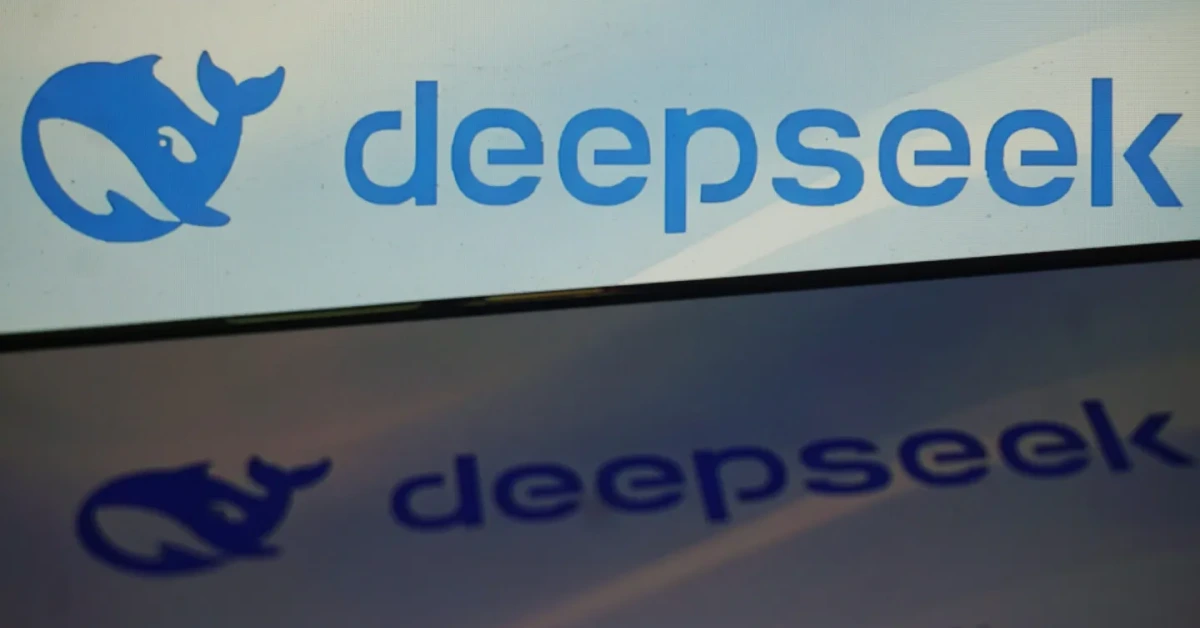
USA – Nvidia, the leading US chipmaker, has suffered a sharp 16.9% drop in its stock value, alongside declines in other tech giants like Microsoft, Google, and Broadcom, after the unexpected success of a Chinese AI chatbot, DeepSeek.
Launched just last week, DeepSeek has already become the most downloaded free app in the United States.
Its low-cost development has startled the market, raising concerns about the future of US AI dominance and the billions invested in AI infrastructure by American firms.
DeepSeek, developed using the open-source DeepSeek-V3 model, reportedly cost just US $6 million to train, a fraction of the billions spent by its competitors.
Leveraging existing technologies and open-source code, the chatbot challenges the conventional notion of massive AI investment, boasting performance comparable to OpenAI’s advanced models in tasks like coding, math, and natural language reasoning.
Silicon Valley venture capitalist and Trump adviser Marc Andreessen described its emergence as “AI’s Sputnik moment,” referencing the Soviet Union’s surprise satellite launch in 1957, which caught the US off guard.
However, DeepSeek’s rise is not without challenges. The company announced on Monday that it is temporarily limiting new registrations due to “large-scale malicious attacks” on its services. Despite this, existing users remain unaffected, highlighting the chatbot’s swift global traction.
DeepSeek’s emergence also underscores the growing divide between US and Chinese AI strategies. As the US restricts advanced chip sales to China, Chinese developers have adapted by sharing resources and innovating with lower-cost, less-powerful chips.
This approach has resulted in AI models that are significantly cheaper and less reliant on high-end infrastructure, potentially disrupting the industry’s dynamics.
Fiona Cincotta, senior market analyst at City Index, noted the surprise impact of a low-cost AI model.
“If you suddenly get this low-cost AI model, then that’s going to raise concerns over the profits of rivals, particularly given the amount that they’ve already invested in more expensive AI infrastructure,” she said.
Similarly, Singapore-based technology equity adviser Vey-Sern Ling warned that DeepSeek “could potentially derail the investment case for the entire AI supply chain.”
The financial markets reacted strongly. In the US, Nvidia and Broadcom suffered double-digit declines, while Microsoft and Alphabet saw their shares dip by over 2% and 4%, respectively.
In Europe, chip equipment maker ASML’s stock fell by 7%, and Siemens Energy’s share price plunged by 20%.
Massive AI investments by US firms
DeepSeek’s success comes as American firms ramp up investments in AI infrastructure.
Earlier this month, Microsoft announced plans to invest US $80 billion in AI infrastructure for 2025, while Meta’s CEO Mark Zuckerberg recently revealed a capital expenditure plan of US $60 billion to US $65 billion for the same purpose.
These figures highlight the stark contrast in costs between US-developed AI models and DeepSeek’s approach, leading analysts to question whether such multibillion-dollar investments are justified.
The chatbot’s founder, Liang Wenfeng, an information and electronic engineering graduate from Hangzhou, China, is at the center of this technological disruption.
With a stockpile of Nvidia A100 chips, now banned from export to China, Liang paired these with lower-end, importable chips to create DeepSeek.
Reflecting on the model’s development, Liang remarked in a 2024 interview, “We didn’t expect pricing to be such a sensitive issue. We were simply following our own pace, calculating costs, and setting prices accordingly.”
While DeepSeek’s rise signals potential challenges to US tech dominance, experts caution that the restrictive environment in China may hinder long-term development.
A report from Citi highlighted the advantage US companies hold with greater access to advanced chips, which could sustain their leadership in the field.
XRP HEALTHCARE L.L.C | License Number: 2312867.01 | Dubai | © Copyright 2025 | All Rights Reserved